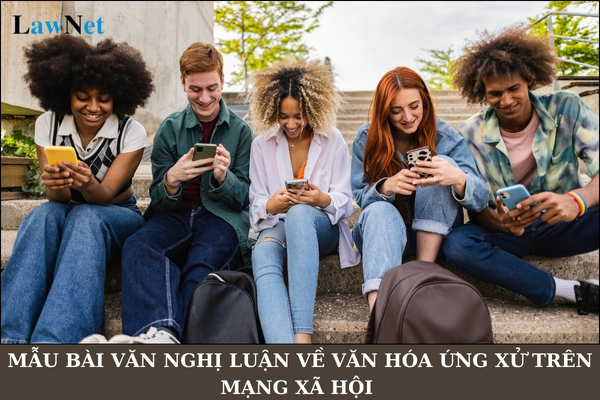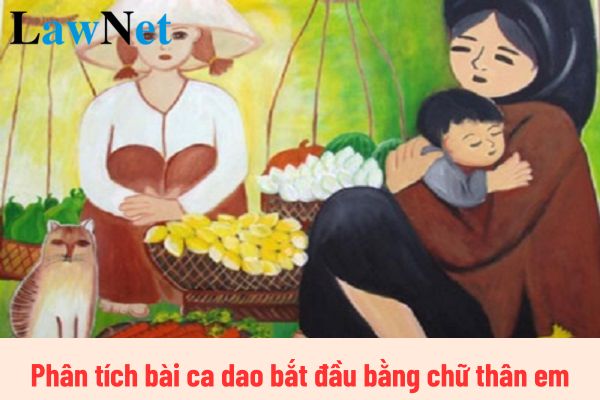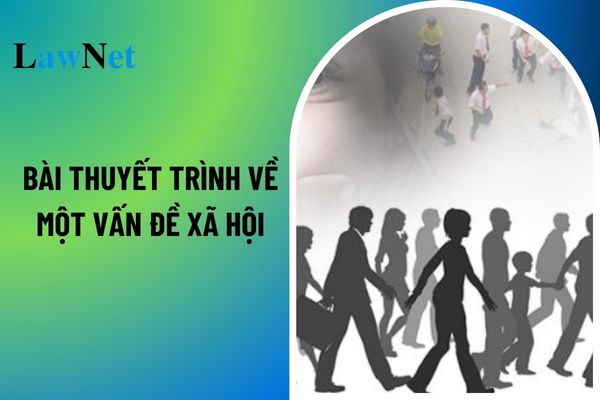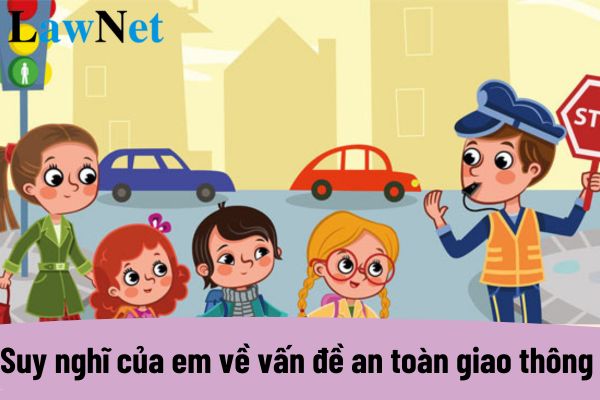Vietnam: What are the sample social argumentative essays on social media etiquette for 10th-grade students? What Vietnamese knowledge do 10th-grade students learn?
What are the sample social argumentative essays on social media etiquette for 10th-grade students in Vietnam?
10th-grade students in Vietnam can refer to the following sample social argumentative essays on social media etiquette:
|
Sample social argumentative essays on social media etiquette Sample 1: |
Note*: The above sample social argumentative essays on social media etiquette are for reference only*

What are the sample social argumentative essays on social media etiquette for 10th-grade students in Vietnam? What Vietnamese knowledge do 10th-grade students in Vietnam learn? (Image from the Internet)
What Vietnamese knowledge do 10th-grade students in Vietnam learn?
Under Section V of the General Education Program for Literature issued along with Circular 32/2018/TT-BGDDT, 10th-grade students in Vietnam learn the following Vietnamese knowledge:
- Word usage errors and correction methods
- Word order errors and correction methods
- Rhetorical measures of insertion, listing: characteristics and effects
- Errors in paragraph and text cohesion: identification signs and correction methods
- Text style and genre
+ Argumentative text: purpose, writer’s perspective; arrangement, presentation of arguments, reasoning and evidence; narrative and expressive elements in argumentative texts; argumentative essays about a social issue; essays analyzing, evaluating a literary work; self-reflective essays
+ Informative text: the combination of linguistic and non-linguistic communication means; a combination of expressive methods; news presentation and writer’s perspective; comprehensive expository texts; rules and guidelines in public places
- How to mark omitted parts in texts, footnote citations, and endnotes
- Non-linguistic communication means images, data, charts, diagrams,...
Do 10th-grade students in Vietnam have to learn the academic topic "Dramatizing Literary Works"?
Under Section V of the General Education Program for Literature issued along with Circular 32/2018/TT-BGDDT, 10th-grade students in Vietnam will learn the academic topics as follows:
Topic 10.1: Research and report preparation on a folk literature issue
Topic 10.2: Dramatizing literary works
Topic 10.3: Reading, writing, and presenting a poetry collection, a short story collection, or a novel
Thus, the academic topic "Dramatizing Literary Works" is one of the academic topics that 10th-grade students in Vietnam will learn in the Literature curriculum.










- Vietnam: What are the sample expressive essays on your father for 7th-grade students? What learning outcomes are required for the writing process in the 7th-grade Literature curriculum?
- Vietnam: What is the sample essay on one thing you want to change for a better life?
- What are 10 best Christmas movies for children in Vietnam? Are 10-year-old students in Vietnam eligible for movie ticket discounts?
- Vietnam: What is "A Casually Recorded Collection of Strange Tales/Truyền kỳ mạn lục"? Is 10th-grade Literature a compulsory subject?
- Vietnam: What does strange tale mean? What are the duties of 9th-grade students in school?
- Vietnam: What is the sample 600-word social argumentative essay on the necessity of digital platforms in life? What are the key digital transformation tasks in teaching for the 2024-2025 academic year?
- Vietnam: What are the guidelines for preparing for the lesson "Thi nói khoác" in the 8th-grade Literature curriculum? What literary knowledge will 8th-grade students learn in Literature?
- Vietnam: What are the guidelines for preparing for the lesson "Đường núi" in the 7th-grade Literature curriculum? What types of writing will 7th-grade students be taught?
- Vietnam: How many days off does the Gregorian New Year holiday 2025 last? What are the important timelines for students after the Gregorian New Year 2025?
- What are guidelines and measures for addressing limitations and shortcomings for members of Vietnam Communist Party by the end of 2024?

